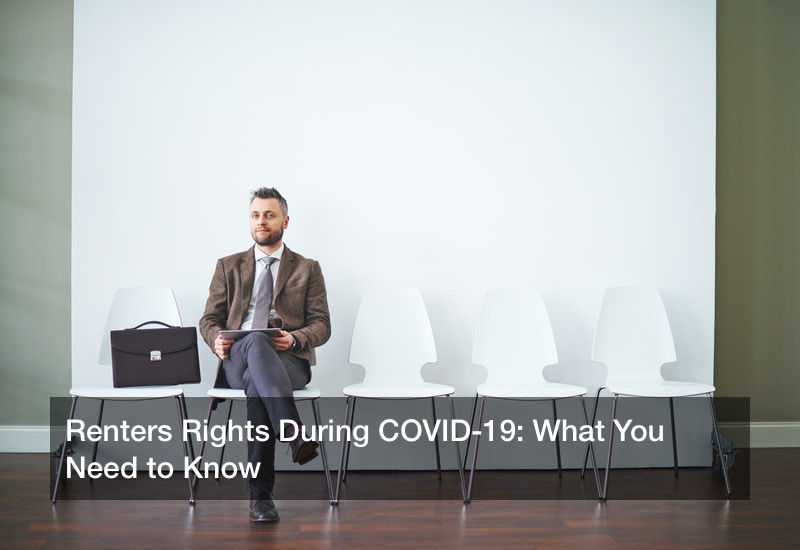
The current pandemic has set a lot of people back. Currently, it is estimated that between 30 to 40 million people in the U.S. are at risk for eviction due to complications stemming from COVID-19. In a survey of 100 legal aid attorneys in 38 states conducted by the National Housing Law Project, an astounding 91% of respondents reported illegal evictions occurring in their area. An additional 53% said that tenants were being illegally locked out of their homes by landlords, and 18% reported that landlords were using intimidation and threats towards tenants.
Legal services are concerned due to this surge and fear that the ever-growing number of people who need support will quickly become too overwhelming for tenant attorneys to handle. While many tenants were protected under moratoria included in the CARES Act, which included stipulations that no tenants could be evicted for not paying rent, this memorandum expired on July 24th, currently leaving many renters without protection. While separate states have passed their moratoria, many have already expired and some went without any at all.
In the same survey mentioned above, 88% of attorneys and legal services also reported that they were concerned that remote and digital court hearings have further hindered the ability of low-income tenants to be represented. This is because access to technology and the internet can hinder their ability to appear and be heard, especially given that many places that once provided access, such as libraries or coffee shops, have since been closed or shortened their hours. Without being able to attend these hearings, many tenants end up facing default judgments against them.
Needless to say, the situation is dire, and without government compliance measures and additional federal assistance, it is expected that 20 to 28 million renters could be at risk of losing their homes by September. If you are a tenant facing intimidation, mistreatment, or eviction due to non-payment stemming from COVID-19, here is what you need to know about your rights.
Tenant’s Rights
As a renter, you have specific rights that cannot be stripped even in the event of non-payment. In no instance does a landlord have the ability to intimidate, threaten, or refuse to provide you with services that make your home livable. To give you a better idea of what you are entitled to as a renter, here are the main points.
1. Your Home Must Be Habitable

As a tenant you always have the right to habitable and clean housing, and it is the landlord’s responsibility to provide and maintain this. This means that your residence may not go without needed repairs, water, or pest removal. For example, if your home has a plumbing problem that causes you to not be able to use your toilet, sink, or shower, your landlord cannot refuse repairs. And, this doesn’t mean that your landlord can simply come over themselves and install hose clamps for plumbing and call it a day. No, you are entitled to professional repairs completed by a plumbing company that can guarantee that you’ll be able to use your fixtures. Many landlords think that they can get away with trying to save money by doing jobs themselves; however, if they cannot provide a professional quality job that leaves your home in good condition then they are in the wrong.
Similarly, if your home is experiencing a pest infestation, a landlord cannot withhold services to remove them, especially as an attempt to get you to move out. Regardless of non-payment, a landlord cannot refuse to call in pest control services to provide you with more sanitary living conditions. The same is also true for any mold growth that you might have in your home. All of these issues fall under the implied warranty of habitability which exists in nearly all 50 states. Essentially this is an implied promise that is read into leases which states that the property shall be suitable for habitability. This promise requires that the landlord maintain compliance and make any repairs or corrections as necessary to ensure the residence is safely livable. If you’re having these services withheld, your first course of action should be making a verbal complaint towards your landlord.
2. Receiving a Timely Response to Complaints

If you have submitted a complaint to your landlord, you are entitled to a response promptly. If the home is currently facing problems that deem it ‘uninhabitable’ — as mentioned above — then they must fix it immediately. In some cases, they can even be forbidden to collect rent during the time in which these problems are present.
However, while you should still attempt to pay what you can, just to ensure that your finances are documented. If the problem is left to escalate to the point where the tenant needs to spend money themselves to fix the problem, then they may be able to recoup this loss by recovering the rent paid during the period where their residence was in disrepair.
Remember to keep documentation of every interaction with your landlord during this time, and if you can pay, keep records of everything you have paid. This can help give you an upper hand if you have to sue. If you need help with documentation or need advice during this time, there are numerous legal services set up to help advise renters who find themselves in situations like this.
3. Third-Party Intervention

If you have verbally notified your landlord and no action is taken, you should document the conditions via photographs with timestamps. If the landlord is still making no moves to try and rectify the problem or is outright refusing, you can file a formal complaint with your local housing authority and request a home inspection.
If the residence is found to violate habitation standards, they could tell the landlord that they need to act immediately. Doing this can help you maintain your residence, even if your landlord is adamant about not complying with their responsibilities. Filing a complaint and getting the Housing Authority involved can also help get you documentation that could later be used if you do need to sue your landlord.
4. Your Right to Sue
If your landlord has been issued a 60-day notice by the city stating that repairs need to be made to the residence and they still are not taking action, you can use legal services to sue to recover the rent you paid while living in the residence. For instance, if it’s the middle of winter and your landlord was issued a 60-day notice that the heating needs to be fixed, and they still refuse to call in HVAC contractors, you can sue on that basis.
While this will require you to wait the 60 days, if you pay due to the landlord still refusing, you may be able to recoup your losses. It’s recommended however that you speak with an attorney or other local legal services beforehand to ensure that your state permits this. You don’t want to risk paying only to end up losing money on what should have been your landlord’s responsibility.
Your Landlord Does Not Have the Right to Enter Your Residence

Another problem many tenants face is their landlord threatening to lock them out or enter their residence to forcefully evict them. This is illegal and unless it is an emergency your landlord must give you a 24-hours notice before entering. Even with this notice, landlords are only supposed to enter during standard business hours unless otherwise agreed on by both parties. If your landlord is threatening to lock you out, as some people have reported, report them immediately, and document any verbal or written statements that they have made stating as such. This can give you evidence of their behavior if you need to employ legal services and take the matter to a court.
Your Rights During an Eviction
If you are renting a controlled residence than there are a small number of specific reasons you can be evicted; however if you do not live in a rent-controlled residence you can technically be evicted for any reason at all. That said, this does not mean that after an eviction notice has been served that you can be forcefully thrown out once the 14 to 30-day time frame has passed. Your landlord cannot throw you out after this time, it only means that they can formally begin the eviction process. Fortunately, most states have laws that give tenants time to find another place to live during this period, even if you are months behind with non-payment. You may also be able to reduce the amount of rent you owe during this time.
During the eviction process it’s essential to remember that you cannot under any circumstances be locked out by your landlord, they have no right of possession of your residence until you have officially left. The only person why can evict you is a Sheriff’s Deputy not your landlord.
If your landlord has locked you out or gone into your residence to forcefully remove your possessions, this is a serious offense and they can be sued for it. If this has happened to you, or if you have been threatened with this, speak with your local legal services for assistance.
Legally, the eviction process should look like this:
- You are served a notice for eviction and given either 14 or 30 days.
- After this time your landlord can serve you with a summons and a complaint about the eviction.
- Once this is received you should have a hearing scheduled for 10 or so days after the received date.
- If you are ruled against during the hearing, an execution notice will be issued for 10 days after the hearing date.
- You should receive a final 48-hour notice before a Sheriff’s Deputy arrives to formally evict you.
This timeline is an absolute worst-case scenario and you can often ask for the timeline to be extended during the hearing. It should be noted also that since many hearings have been digitalized during the pandemic, you should contact the person overseeing the case and explain your situation to them if you don’t have access to either a computer or internet. Because of the nationwide situation right now you may be able to receive extra time or be given advice on how you can attend the hearing to represent yourself.
If you are facing financial hardships due to COVID-19 you should also consider bringing up any paperwork that shows you’re financial distress is linked to the current pandemic. If you’re unsure of what to bring, speaking with a legal professional can help you. While your state may not currently have moratoria preventing eviction due to COVID, showing proof of hardship linked to the pandemic may help you get more time to stave off your eviction date.
Hiring an Attorney
If your eviction does end up going to court, it’s important to hire legal services to formally represent you. A tenant attorney will know the laws and will know what the best course of action is for your situation. Many legal services can be hired pro bono and some may even be able to point you to local rental assistance programs to help cover your non-payment.
Stand Up for Your Rights
While the current pandemic has made it difficult, you are still entitled to basic tenant rights even if you are unable to pay. With nearly 40 million people facing eviction currently, know that you are not alone in this struggle. If your landlord has been threatening you with eviction, lockouts, or refusal to provide habitable housing, take the steps listed above and consider seeking out local legal services to help you win your case.

